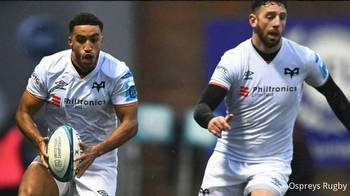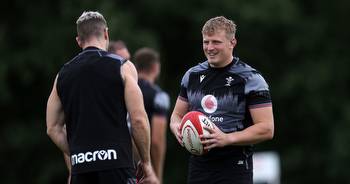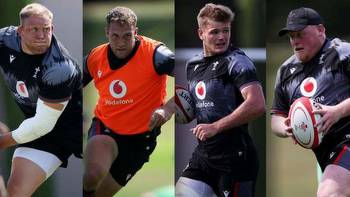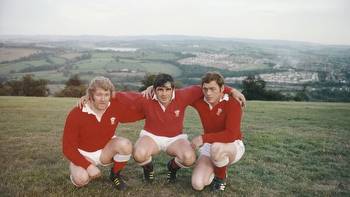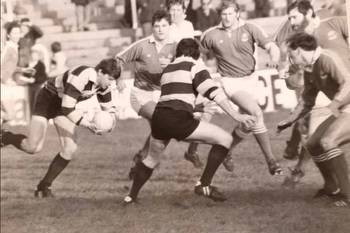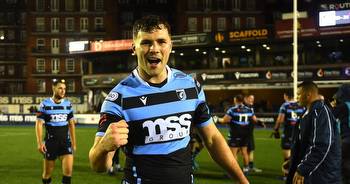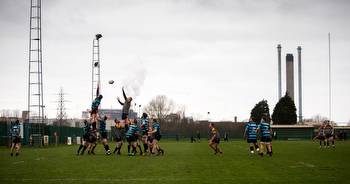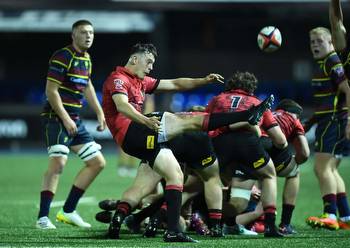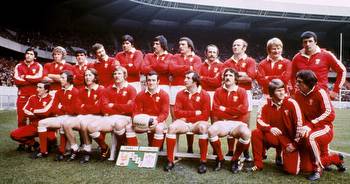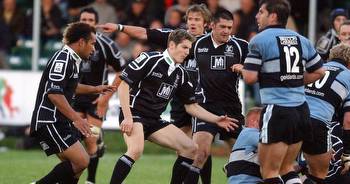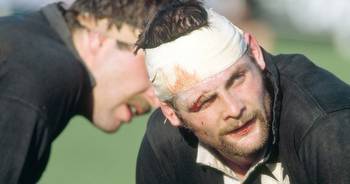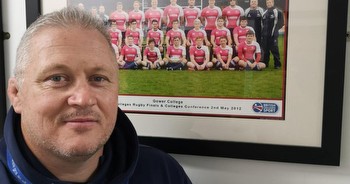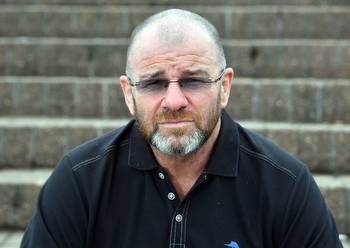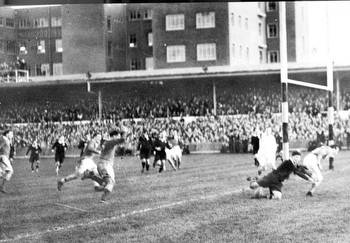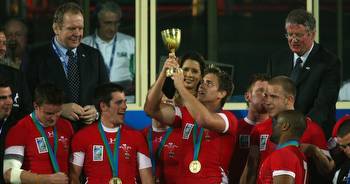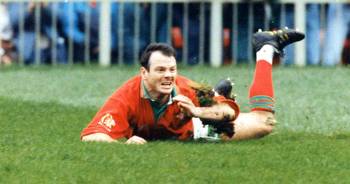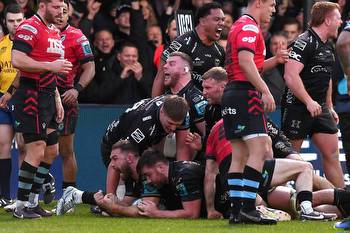Wales' hardest-ever rugby team fought animals, dumped team-mates on mountains and became feared throughout Britain
Neath RFC ring up 150 years this season. Doubtless, a collective bat will be raised and a fresh guard taken at a club who have a history as rich as any.
“A school of hard knocks,” someone described it as after an overseas player who’d been flagged up as the Human Skewer didn’t do much skewering on his debut in the 1990s and The Gnoll let him know in no uncertain terms what they thought of his efforts.
Rewind all the way back to 1883 and Llanelli went to Neath for a fixture despite receiving advance warning of the consequences of beating the hosts. It was a brave move. In Fields of Praise, the Welsh Rugby Union’s official history, the authors write: “At the end of the game, the Llanelli players, reportedly, ‘were faced by an infuriated mob. Surrounded by some scores of youths and men, not boys, they were hustled and pushed, hooted and pelted with clods, mud and even stones’, and had to fight their way to their hotel.”
As Pontardawe’s finest Mary Hopkin might have commented, those were the days my friend...
Yet Neath can also be as warm, friendly and hospitable as any club.
And they are a club who have achieved, hugely.
The estimable Mike Price, Neath’s secretary and club historian, feels the club’s greatest sides came to the fore in 1909 to 1912, the late 1920s and in the late 1980s and early 1990s.
The latter of those teams had been five or six years in the making.
And what a team it was, setting world records for points in a season (1,917) and tries (345) in 1988-89. Both were almost matched the following campaign when New Zealand were also given a hurry-up at The Gnoll.
Sides visiting Neath in that era were not so much beaten as flogged. Fifty-point hidings were routine. Opponents would frequently known to develop cases of 'Neath flu', a mysterious ailment that struck down visiting players in the days leading up to an away game against the Welsh All Blacks. “Sides were coming to The Gnoll and you could hear, from the opposition changing room, that so-and-so had pulled out,” Kevin Phillips once told WalesOnline.
“You knew then they were on a loser.”
This Saturday, Neath face Swansea at The Gnoll in a game that carries special significance as the pair met a century-and-a-half ago in what Neath say was the first recorded inter-club fixture in Wales.
It’s a friendly this weekend, but the hope is the crowd will be a good one, celebrating a landmark for two of Wales’ greatest clubs.
Maybe memories will be swapped of days gone by.
Maybe black-clad supporters will allow their minds to drift back to the days when their side were the most feared in Britain, in the late 1980s and early 1990s, when Neath boasted Brian Williams, Kevin Phillips and John Davies in the front row, Phil Pugh, Rowland Phillips, Lyn Jones and Mark Jones in the back row, with the Llewellyn brothers, Mike Whitson, Paul Jackson and Barry Clegg as locks. Earlier they had the formidable Dai Morgan in their ranks, a players’ player, respected by all and seen in Neath as one of the best never to be capped by Wales.
Here are a few tales from that era, episodes that for good or ill made Neath RFC such a distinctive club.
Fighting with bulls
Many felt this episode just to be part of Neath mythology, a tale brought back from a trip to France and embellished with each re-telling.
But Gareth Llewellyn was there when the episode unfolded.
A teenager at the time, he feared a Neath player might get seriously injured or even killed during the events that unfolded.
Rugby supremo Brian Thomas had taken a group out to a farm, saying: "Boys, they have a small bullring here where you can go in and have a go, with some small bulls.'
They were not small bulls.
When the gate opened at the bullring, a proper bull emerged, with steel balls on its horns, presumably to stop the worst effects of potential goring.
Llewellyn takes up the story: “The boys were creeping out from behind the safety barriers until Andrew Kembery decided to edge a bit further.
“The bull, in the meantime, was doing everything you’d seen in cartoons — scraping the dust back with his hooves, bowing his head and snorting.
“I thought to myself: ‘If that bull runs, Kembers is not going to make it back to safety’.
“With that, the bull took off.
“Instead of trying to reach safety, Kembery panicked and pulled up the cloak in front of him and got absolutely flattened. He was knocked off his feet and had a huge gouge down his chest where a steel ball had hit him, which meant he couldn’t take part in the game at the weekend.
“The French guys who were watching were just laughing at it all.”
That should have been that, really. Point proved: rugby players make useless bullfighters, let’s all go and have another glass of pastis.
But the French weren’t finished, sending in another, bigger bull, this time with nothing on his horns.
“By that stage, even Brian Thomas was starting to get twitchy,” remembered Llewellyn.
“But Kevin Phillips and Brian Williams jumped into the ring.
“Brian Thomas shouted: ‘Get out, get out. This is over now. We’ve finished’.
“The farmers [Phillips and Williams] were having none of it and within seconds they were doing the matador thing, swishing cloaks above their heads and stepping to the side when the bull ran towards them.
“It was unnerving to watch.
“After seeing what had happened to Kembery, I thought there was a fair chance we could see someone seriously injured or worse.
“I thought there was a fair chance I was going to see somebody die.
“Kevin got himself into a bit of trouble but managed to get out of there and behind the safety barrier.
“The next thing the bull ran at Brian Williams.
“Brian tackled the bull around the neck and the animal took off, charging around the ring with Brian holding on for dear life. He was eventually shrugged off but pulled himself up and used his skills as a farmer to calm the bull.
“Even the French were astonished.
“They went from laughing at us to being stunned into silence at what Brian had just done.”
It was a Crocodile Dundee moment without the hat with corks.
Ludicrous, really.
An episode definitely not to be copied by kids.
Infamous programme notes
Neath’s game with South Africa in 1994 turned out to be one of the most violent matches ever played.
With hindsight, maybe the tone was set by Neath boss Brian Thomas with his programme notes that night.
Under the heading Memories of Battle, he wrote of his 1969 tussle with “the great South African prop, Potgeiter”.
He recalled: “He didn’t speak English, only smiled. I punched him, kicked him, swore at him and all he did throughout the game was smile at me.”
It was later suggested that both sides must have read the gospel according to St Brian before they left their dressing rooms.
Thomas was a one-off, Cambridge-educated and highly intelligent but also blessed with a ruthless on-pitch streak and a man not averse to the occasional spot of intimidation.
Phil Bennett once told how Thomas reacted when a 19-year-old Benny, leading Llanelli, fronted up for the coin toss before a game in Neath.
Benny said: “He looked down at the Llanelli captain and laughed in my face. ‘You! What’s wrong? Have Llanelli run out of grown men to captain their team these days?’
“I felt intimidated and not surprisingly we lost the match.”
An alternative take on the story, which has perhaps been twisted with each retelling, is that Benny knocked on the Neath dressing room door with the referee only to be confronted by Thomas, who looked as if he had just learned that a lorry had driven over his new car.
Told the visitors had come about the coin toss, the big man is said to have roared: “We’ll kick off and play with the wind in the first half, and if you don’t f*** off we’ll do the same in the second half as well.”
The second take on matters is just as plausible as the first.
A formidable man was Brian Thomas.
Playing ‘Buzz’...with a difference
Everyone who’s played rugby or been on a tour will be familiar with the game of Buzz.
It’s not an exercise in amusement that would have full support of the Temperance Movement.
Anyone getting a number wrong is penalised, normally by downing a drink. For those who don't know their times tables, it’s a surefire way of boarding Oblivion Express in the shortest possible time.
But Neath played the game differently.
Their former back-row forward Rowland Phillips related: “After away matches we would be travelling back on the coach and play Buzz.
“It would be sevens times table and numbers with seven in it. If anybody messed up, the person to your left, punched you in the face.
“But if anybody thought that wasn’t tough enough, or they hadn’t punched you hard enough, you had to punch them back.
“As you can imagine, no-one was going to get punched back, so the Buzz games we used to play at Neath became absolute carnage.
“People talked about our team, our fitness, the tries and the way we played. But what people didn’t realise was we were very, very good at our seven-times table.”
Pick your team here now
Charge Run, Murderball
If Buzz was an ordeal masquerading as a bit of fun, even less subtle were two other coach-trip games dreamed up by those on the Neath entertainment committee at the time, Charge Run and Murderball.
No-one whiled away the time on those journeys back to the clubhouse reading the Encyclopedia Britannica.
Rupert Moon, a Neath player before switching to Llanelli, said: “Coming home from matches, there was a game called Charge Run where you had to run from one end of the bus to the other, getting past everyone. It was a gauntlet and you were barged, shoved, pushed, shouldered, Neath’s equivalent of tough love. A couple of players were left on the Rhigos mountains after the other boys were disappointed with their efforts.
“Then there was Murderball, with the squad split into two teams for a session in the in-goal area. As someone said at the time, the emphasis was perhaps on the ‘murder’ rather than the ‘ball’.
“But tremendous camaraderie was generated.”
Among those who survived.
It wouldn’t happen today...
In their game against South Africa in 1994, Neath counted themselves fortunate on the night to have in their ranks Brian Williams, the hard man’s hard man.
But at one point he found himself on the receiving end.
“Brian Williams was poleaxed from behind by Tiaan Strauss,” says Neath’s then captain Gareth Llewellyn.
“He was dazed and confused and really needed some time to come to his senses.
“At the same time Andrew Kembery was bleeding from the fighting. I got hold of Kembery, wiped some of his blood onto Brian and told the ref that Brian needed to get tidied up for a few minutes on the sidelines.
“It did the job.
“He had a few minutes to gather his thoughts and then came back on, as aggressive as ever.
“At one point, Brian took on three of them.
“That wasn’t a fair fight, then.
“I’m surprised more South Africans didn’t get involved to even up the odds.”
Going the extra mile...
It’s a strange one, though.
Even with Charge Run, Murderball and Buzz with a twist, most players relished playing for Neath in their pomp.
The club engendered an us-against-the-world mentality that pretty much all involved seemed to relish.
Outsiders were treated warily. City clubs, too.
When this writer wrote a piece at the outset of his career praising Swansea after a win over Neath, a put-out Brian Thomas said: “You are from Maesteg. You can’t be favouring Swansea ahead of Neath. Swansea are a city club.”
The counter-argument that a journalist is supposed to be even-handed cut zero ice with the big man.
Both clubs were superb to deal with.
Still are.
The example of Allan Bateman highlights how tightly Neath’s team spirit and camaraderie gripped players.
“It’s hard to speak too highly of him,” the club’s legendary former team secretary Dai Shaw has said.
“The tradition was in those days that a player didn’t play the week before his first Wales cap. But we had an important game — I think it was against Cardiff — and he made a point of playing. That summed him up. He always went the extra mile.”
When Bateman had joined Neath there was no rose-petal welcome. Some players told him at the first training session they thought Waldron had wanted to sign another centre from Maesteg.
Fortunately, the master craftsman had no ego.
Always a club that did things in their own way.


